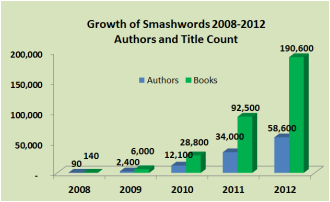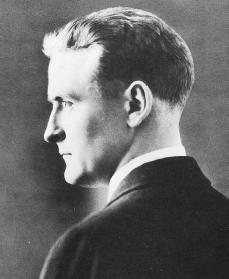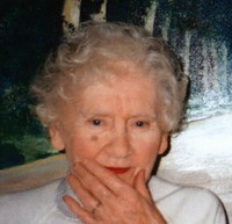Erica Verrillo's Blog, page 104
May 30, 2013
Are You Ready to Contact an Agent? Take This Short Quiz and Find Out!
 You’ve finally completed your book. You’ve had it critiqued – brutally – and done more revisions than you care to count. Your proofreader has made sure there’s not a single error in the entire manuscript, and now you are confident that your work is ready to be published. What next? Obviously, you need an agent. So, after searching AgentQuery for agents representing your genre, and consulting Jeff Herman’s Guide and the most recent Writer’s Digest, you are sitting down to compose the perfect query letter.
You’ve finally completed your book. You’ve had it critiqued – brutally – and done more revisions than you care to count. Your proofreader has made sure there’s not a single error in the entire manuscript, and now you are confident that your work is ready to be published. What next? Obviously, you need an agent. So, after searching AgentQuery for agents representing your genre, and consulting Jeff Herman’s Guide and the most recent Writer’s Digest, you are sitting down to compose the perfect query letter.Stop. You’ve skipped some steps.
Before you can even think about contacting an agent, there are several important questions you must be able to answer. Why? Because, if an agent calls you, she or he will ask them. (I know this from painful personal experience.) You must be prepared to reply with compelling answers.
This short quiz will tell you if you are ready to take on the publishing industry.
1) Have you written a one-page summary of your novel? Do you have a “hook,” an intriguing sentence that will draw your audience into your story, for example: “A man wakes up one morning to discover that every single person he knows is trying to kill him – even his wife and kids – and he has no idea why.” Can you keep your agent’s full attention for three minutes while you describe (verbally, or in writing) the rest of the story? In short, if your agent asks, “What’s your book about?” can you sell it? 20 points
2) Have you researched your market? Who will buy your book? Agents rely on numbers because publishers do, so you have to be able to say, with accuracy, how many people are in your demographic. (Hint, “adults” is not a demographic. College-educated, married women with small children is a demographic.) 20 points
3) What is your competition? Your agent will want to know the titles, authors, publishers, and year of publication of other popular books in your genre (or field). There are two reasons for identifying your competition: 1) You have to prove that there is already a market for your kind of book, and 2) You have to prove that your book is better or different. (Give specifics.) 20 points
4) How will you reach your market? Do you have a platform? You may think that marketing is the job of your publisher, and it is. But agents must convince editors that not only is there a market for your book, but that you have the credentials, and visibility, to promote your work. In the old days, BI (before internet), this was done through book tours, signings, and talks. You can still do those things, but what agents really want to know is how many people are reading your blog/website. (Publishers are fond of the number 10,000, so it helps to be able to say, “My blog/website has had 10,000+ page views.”) If you have published other books, how many were sold? Do people in your field or niche know who you are? Do you have any famous contacts who can give you endorsements? 20 points
5) Do you, in Michael Larsen’s immortal words, “harbor a consuming lust for success,” and are you “irresistibly driven to do whatever it takes to make your books sell?” Your agent will expect you go the whole nine yards, and to comply – eagerly – with whatever sports metaphors your publisher will hurl at you. This is no time to be a shrinking violet. You are going to have to step up to the mat and bat a thousand. 20 points
If you scored a hundred, congratulations! You are ready to contact an agent. If you answered, “I don't need to do that,” “I can't do that,” or “Huh?,” to any of the above questions, then get to work!
How to score 100 on the test
1) Fortunately, there are a many good books about pitches and proposals. I recommend Michael Larsen's How to Write a Book Proposal. (This book is also useful for fiction.) Larsen really understands the publishing industry, so you can rely on his advice. To get the hang of preparing pitches, start with a pitch for a book you haven't written. If your one-sentence hook can make your friends want to read the book, then move on to pitching your own work.
2) To determine your demographic, check the Alexa ranking for every well-trafficked website related to your genre or field. Alexa includes a demographic profile for high-ranking sites. Identify all the organizations or groups that might have an interest in your topic. What is their membership?
3) Amazon is one of the greatest research tools of all time. To identify your competition, look up the bestsellers in your genre. What books are on the top 100 lists? Who publishes them? Use the “look inside” feature to compare those books with your own. (Google Books also allows generous previews.)
4) Building a platform takes time. But you can accumulate 10,000 page views in a few months if you blog about interesting topics – and if you do some social networking. Advertise your blog posts on BookBlogs, Goodreads, and LinkedIn groups. You can precycle your posts on blogs that get more traffic than yours. You can recycle your blogs, as well, on sites that accept reprints. Look up the "Top 50 blogs" in your genre on Blogrank and read them! High-ranking blogs invariably contain lots of insider tips, trends, news, and industry gossip.
5) Getting writers to harbor a consuming lust for anything other than writing is a tall order. Writers are an idealistic lot, deeply committed to exploring the human soul while crouched in front of a keyboard in a dim, unheated garret. Before you contact an agent, you need to go through a metamorphosis – from idealistic writer, to practical businessman. When your agent asks if you will do anything to sell your book (mine did), there can only be one answer.
This article first appeared on Writer Unboxed on May 30, 2013.
Published on May 30, 2013 07:57
May 24, 2013
What Did Stephen King Read as a Child?
 Stephen King
Stephen King "I have the heart of a small boy... and I keep it in a jar on my desk." ~Stephen King
Stephen King - he's smart, he's successful, and he says exactly what he thinks. He grew up without a TV. That explains a lot.
Stephen King on What He Read as a Kid
By Ken Tucker
Sunday’s PARADE features a rare interview with master storyteller Stephen King. His new novel, Joyland (a paperback original due June 4), follows lovelorn college student Devin Jones, who, while working at a small-time amusement park, learns the secret history behind a shocking murder.
“I’ve been typed as a horror writer, but I never saw myself that way,” King tells PARADE’s Ken Tucker. “I’ve reached a point in my life where I can write pretty much what comes into my mind and not worry about grocery day at Publix.”
In the exclusive online extras below, King shares the horror classic his mom read to him as a child and his views on gun control, a subject he also addresses in the Kindle Single essay Guns. Be sure to check out this weekend’s issue of PARADE for the full story.
Published on May 24, 2013 10:22
May 20, 2013
Most Comprehensive Study Ever of How Self-Published Authors Are Doing in the Marketplace
 This must-read study was posted on Smashwords on May 8th. If you want to find out what the best price for an ebook is, if long books sell better than short books, how many book sell well, and what the average word count for the 60 bestselling Smashwords romance books is - go HERE.
This must-read study was posted on Smashwords on May 8th. If you want to find out what the best price for an ebook is, if long books sell better than short books, how many book sell well, and what the average word count for the 60 bestselling Smashwords romance books is - go HERE.New Smashwords Survey Helps Authors Sell More eBooks
May 8, 2013
"Last year at the 2012 RT Booklovers in Chicago, I released a first-of-its-kind study that analyzed indie ebook sales data. Our goal was to identify potential factors that could help authors sell more ebooks.
Last week at the 2013 RT Booklovers convention in Kansas City, I shared new, updated data in a session titled, Money, Money, Money — Facts & Figures for Financial Payoff. Now I'm sharing this data and my findings with you.
Some of the results were surprising, some were silly, and some I expect will inform smarter pricing and publishing decisions in the year ahead.
For the study this year, we analyzed over $12 million in sales for a collection of 120,000 Smashwords ebooks from May 1, 2012 through March 31, 2013. We aggregated our sales data from across our retail distribution network, which includes the Apple iBookstore, Barnes & Noble, Sony, Kobo and Amazon (only about 200 of our 200,000 titles are at Amazon). As the world's largest indie ebook distributor, I think our study represents the most comprehensive analysis ever of how ebooks from self-published authors and small independent presses are behaving in the marketplace."
Read more ...
Published on May 20, 2013 11:55
May 16, 2013
"If you don't know what's impossible, it's easier to do it." ~Neil Gaiman's words of inspiration.
For all young - and old - writers, wherever you are, watch this. Neil Gaiman has it down.
"Whatever you do, you have one thing that is unique. You have the ability to make art.
When things get tough ... make good art.
Husband runs off with a politician ... make good art.
Leg crushed and then eaten by mutated boa constrictor ... make good art.
IRS on your trail ... make good art.
Cat exploded ... make good art.
Someone on the internet thinks what you are doing is stupid, or evil, or it's all been done before ... make good art.
The one thing that you have that nobody else has is you. Your voice. Your mind. Your story. Your vision."
"Whatever you do, you have one thing that is unique. You have the ability to make art.
When things get tough ... make good art.
Husband runs off with a politician ... make good art.
Leg crushed and then eaten by mutated boa constrictor ... make good art.
IRS on your trail ... make good art.
Cat exploded ... make good art.
Someone on the internet thinks what you are doing is stupid, or evil, or it's all been done before ... make good art.
The one thing that you have that nobody else has is you. Your voice. Your mind. Your story. Your vision."
Published on May 16, 2013 14:38
"If you don't know it's impossible, it's easier to do..." Neil Gaiman's words of inspiration.
For all young - and old - writers, wherever you are, watch this. Neil Gaiman has it down.
"Whatever you do, you have one thing that is unique. You have the ability to make art.
When things get tough ... make good art.
Husband runs off with a politician ... make good art.
Leg crushed and then eaten by mutated boa constrictor ... make good art.
IRS on your trail ... make good art.
Cat exploded ... make good art.
Someone on the internet thinks what you are doing is stupid, or evil, or it's all been done before ... make good art.
The one thing that you have that nobody else has is you. Your voice. Your mind. Your story. Your vision."
"Whatever you do, you have one thing that is unique. You have the ability to make art.
When things get tough ... make good art.
Husband runs off with a politician ... make good art.
Leg crushed and then eaten by mutated boa constrictor ... make good art.
IRS on your trail ... make good art.
Cat exploded ... make good art.
Someone on the internet thinks what you are doing is stupid, or evil, or it's all been done before ... make good art.
The one thing that you have that nobody else has is you. Your voice. Your mind. Your story. Your vision."
Published on May 16, 2013 14:38
May 14, 2013
Despite Gains Made by Digital Books, Paperbacks Remain Most Popular Book Format
 If you aren't already reading Publisher's Weekly, you need to sign up and get their free newsletter. This is where you will find Industry news, trends, and occasional juicy gossip. In this article, Bowker director Carl Kulo reveals that paperbacks are still garnering the lion's share of the market. (It's hardly surprising ... which would you rather take to the beach, an old paperback or your brand-new Kindle Fire?)
If you aren't already reading Publisher's Weekly, you need to sign up and get their free newsletter. This is where you will find Industry news, trends, and occasional juicy gossip. In this article, Bowker director Carl Kulo reveals that paperbacks are still garnering the lion's share of the market. (It's hardly surprising ... which would you rather take to the beach, an old paperback or your brand-new Kindle Fire?)Online Retailers, E-books Gained in 2012
By By Jim Milliot, PW, May 11, 2013
At Publishers Weekly’s May 8 discussion series on trends in consumer book-buying, held at the offices of Random House in New York City, Carl Kulo, U.S. director of Bowker Market Research, highlighted the major shifts that took place in 2012 in such key areas as sales by format and by channel.
E-books captured 11% of all book spending last year, up from 7% in 2011, Kulo reported, while e-books accounted for 22% of units in 2012, up from 14% the prior year. In 2010, e-books accounted for only 2% of spending. Despite the gains made by digital, paperback remained the most popular format last year, accounting for 43% of spending, down one percentage point from 2011, while hardcovers represented 37% of dollar sales, down from 39%.
Read the rest HERE.
Published on May 14, 2013 14:46
May 10, 2013
The Great Gatsby, F. Scott Fitzgerald's Most Famous Failure
 F. Scott Fitzgerald The Great Gatsby hits theaters today, and predictably the paperback tie-in hit #1 on bestseller lists. But, F. Scott Fitzgerald never saw his book become a success. In fact, at his untimely death at the age of 44, he had earned a grand total of $13.13 in royalties. Read Newspaper Alum's great blog on why it took so long for F. Scott Fitzgerald’s masterpiece to make it to the big time.
F. Scott Fitzgerald The Great Gatsby hits theaters today, and predictably the paperback tie-in hit #1 on bestseller lists. But, F. Scott Fitzgerald never saw his book become a success. In fact, at his untimely death at the age of 44, he had earned a grand total of $13.13 in royalties. Read Newspaper Alum's great blog on why it took so long for F. Scott Fitzgerald’s masterpiece to make it to the big time."On May 10th, Baz Luhrmann's new film adaptation of F. Scott Fitzgerald’s literary masterpiece ``The Great Gatsby’’ hits theaters nationwide starring Leonardo DiCaprio, Tobey Maguire, Carey Mulligan, Joel Edgerton, Isla Fisher and Jason Clarke. The official premiere of the film kicked off at a star-studded event at Lincoln Center on Wednesday with a dazzling 3-D spectacle.
``The Great Gatsby’’, written by Fitzgerald while living with his wild and mentally unstable wife Zelda in France and Italy in 1924 and early 1925, tells the tragic story of Jay Gatsby (born James Gatz), once a poor young man who rose to become fabulously rich (through bootlegging) embraces a corrupted form of the American Dream by worshiping the monied class of Daisy Buchanan, a former flame of his while enlisted in World War I. Gatsby finally meets her again for the first time in five years and ultimately becomes destroyed by pursuing what he naively thinks will bring him happiness and fulfillment. The theme of disillusionment with American contemporary culture and its fraudulent emphasis on wealth and power are common threads found throughout the novel. But probably ``The Great Gatsby’s’’ most enduring impact was educating succeeding generations about the roaring 20’s, namely about jazz, gambling, excess drinking, and reckless living.
Whether the film meets with upbeat praise or is scorned by critics; the film will more than likely cause film goers to dust off ``The Great Gatsby’’ from their bookshelves or dash off to the library or their Kindle’s to reread what is now considered the Great American novel.
It’s shocking how long it took ``The Great Gatsby’’ to be considered a classic. It wasn’t until April 24, 1960, for example, that The New York Times wrote: ``It is probably safe now to say that it [The Great Gatsby] is a classic of twentieth-century American fiction.’’
Read the rest of this article HERE.
Published on May 10, 2013 10:37
May 9, 2013
Caveat Scriptor: Writer Beware!
 "It's all 14-carat gold, I swear!" In a fascinating development in the self-publishing scene, three writers are suing Penguin's newly acquired Author Solutions after having paid thousands of dollars for “developmental” packages that included bogus editing and marketing services which were either substandard or simply not delivered at all. "The company's true business is not publishing, the complaint stresses, but selling services to authors." Given the recent rush of conventional publishing houses into the former territory of vanity presses, it will be interesting to see how this suit plays out.
"It's all 14-carat gold, I swear!" In a fascinating development in the self-publishing scene, three writers are suing Penguin's newly acquired Author Solutions after having paid thousands of dollars for “developmental” packages that included bogus editing and marketing services which were either substandard or simply not delivered at all. "The company's true business is not publishing, the complaint stresses, but selling services to authors." Given the recent rush of conventional publishing houses into the former territory of vanity presses, it will be interesting to see how this suit plays out.Authors Sue Self-Publishing Service Author Solutions
By Andrew Albanese
Publishers Weekly, May 01, 2013
"Three authors have filed suit against self-publishing service provider Author Solutions, and its parent company Penguin, airing a laundry list of complaints and alleging the company is engaged in deceitful, dubious business practices. “Defendants have marketed themselves as an independent publisher with a reputation for outstanding quality and impressive book sales," the complaint reads. "Instead, Defendants are not an independent publisher, but a print-on-demand vanity press.”
Read the rest of the article HERE.
Published on May 09, 2013 06:06
May 7, 2013
Literary Agents: The Ultimate Ambiguous Relationship
 A Hollywood agent is about to go bankrupt. He has no clients, and even less in his bank account. So Satan pays him a visit. “I can get Leonardo DiCaprio, Brad Pitt, and Tom Cruise to sign on with you. In return, I want your soul.” The agent ponders the offer for a moment and then says, “But what do you get out of it?”
A Hollywood agent is about to go bankrupt. He has no clients, and even less in his bank account. So Satan pays him a visit. “I can get Leonardo DiCaprio, Brad Pitt, and Tom Cruise to sign on with you. In return, I want your soul.” The agent ponders the offer for a moment and then says, “But what do you get out of it?”To a certain extent, agents deserve their reputations. Agents are middlemen. They don't create, they don't publish, they simply pass along the work of others. Agents don't have to understand the finer nuances of what you've written, or grasp the subtleties of your prose. They don't even have to like your work (although it helps). All an agent really has to do is sell your book to a publisher. In order to do that, he or she must convince a publisher that your book is the best thing since sliced bread.
This is where the writer and the agent often find themselves at loggerheads. Writers want to be appreciated by the person who represents them. We want them to love our talent, to wrangle the best possible contract out of megalith publishing houses, and we want them to ensure that lots and lots publicity and attention will be lavished on our work.
In short, we want to have our cake and eat it too. We want the agent to be both an admirer and a salesman.
Why we resent them
They don't call. They don't write. So, where's the love?
Like the increasingly fictitious publisher whose sole purpose in life is to nurture budding authors, the unconditional love of an agent is a pipe dream. In general, agents have even less appreciation for the written word – and for the people who write it – than publishers do. They are looking for a quick lucrative sale. God forbid you should write something that is not, as one agent put it, (referring to a manuscript I'd sent him), “a walk in the park.”
Michael Larsen, in his revealing book, How to Get a Literary Agent, says (quite often) that, “as a writer, you are the most important person in the publishing process, because you make it go.” This is quite true. However, if writers are like cars, then agents are the gas. (Or if agents are like cars, we are gas. Dumb analogies work in any order.) The point is that without an agent, we may as well not exist, as far as publishers are concerned.
Agents are aware of that fact. And that is why agents are harder to snare than a publisher. This is also why they insist on your writing a “perfect pitch.” The query letter, or “pitch,” is not just a brief summary of your work and credentials, it is the script for what your agent will tell an editor. And it is the script for what the editor will tell the publisher. If you feel as if you are doing their work for them, you are. But you are a writer, so man up.
Why we need them
Realistically speaking, agents aren't there to hold your hand. They are there to make a buck, which they can't do without you. The good news is that they know how to do that job a lot better than anybody else.
This is what agents can do for you:
Secure a publishing house
Negotiate a contract
Teach you about the publishing business Securing a publishing house is still the grand prize – even in this age of 200,000+ (and counting) Indie authors, KDP Select promos, and whiz kids with six-figure incomes from ebooks they wrote in less than a month during study hall. Nothing will give you as much cachet as being published by one of the big five. Even the mid-size houses will give you a pedigree you simply cannot get from self-publishing. An agent can get you there.
Secondly, negotiating a contract is not something you want to do on your own, no matter how many books you have read on the subject. Publishing contracts are written by lawyers who are paid a lot of money to keep the best interests of the publishing company in mind. As a consequence, publishing contracts are designed to ensare, confuse, and bludgeon writers into submission. (Trust me, after reading 17 pages of legalese, you will want to run, screaming, back into obscurity.) Your agent, because he or she has done this before, will know which clauses to strike out, when to ask for more, and how to convince the publisher to comply with your best interests.
The last thing that agents do is teach you how the publishing business really works. This may be the most important thing agents have to offer. The entertainment business, of which publishing is a part, is based on mythology: Talent is “discovered,” hard work is rewarded, and stars are delivered by the stork. People who have not been exposed to the inner workings of the publishing world have no concept of how labyrinthine, how medieval, how disorganized, it actually is. Your agent knows, because chances are good that he or she was once an editor. This is a business that is run on daily memos, and that is dominated by people who understand how to juggle the system. Nobody understands that system better than an agent. If you pay attention, you can learn everything you need to know about publishing from an experienced agent. As a writer, that knowledge will prove, not just useful, but invaluable.
These three books will help you understand agents, and what they can do for you. I guarantee you will benefit from reading them.
Michael Larsen. How to Get a Literary Agent. (Sourcebooks, 2006)
Larsen's book is pure gold. Make sure you read every word before you contact an agent.
Jeff Herman, Guide to Book Publishers, Editors, & Literary Agents. (Sourcebooks, 2011)
Jeff Herman asked agents to describe the “client from hell.” Read these descriptions.
Chuck Sambuchino, ed. 2013 Guide to Literary Agents. (Writer's Digest Books, 2012)
Any year of this publication will do. Make sure you read the sections on advice to writers from agents.
Published on May 07, 2013 06:09
May 2, 2013
IDA POLLOCK, STILL WRITING STEAMY ROMANCE NOVELS AT 105
 Ida Pollock at Age 100 This fabulous article appeared a few days ago in the Daily Mail (UK). Ida Pollock wrote her first novel when she was just 14. And at age 105, she is still writing romance novels that have “adventure, mystery, movement.” There was never a question in Ida’s mind that she was meant to write, although her direction did not become clear until her mother asked her to write 'something pretty'. For Ida Pollock, romance novels are not just pretty, they are a source of joy. “My books are full of hope and romance rather than sex,” she says. “They are a form of escapism - you can escape the parts of the world that you don't like.”
Ida Pollock at Age 100 This fabulous article appeared a few days ago in the Daily Mail (UK). Ida Pollock wrote her first novel when she was just 14. And at age 105, she is still writing romance novels that have “adventure, mystery, movement.” There was never a question in Ida’s mind that she was meant to write, although her direction did not become clear until her mother asked her to write 'something pretty'. For Ida Pollock, romance novels are not just pretty, they are a source of joy. “My books are full of hope and romance rather than sex,” she says. “They are a form of escapism - you can escape the parts of the world that you don't like.”World's oldest romantic novelist, who has worked under 10 different pseudonyms, is still writing racy bodice-rippers aged 105
Daily Mail
By TONI JONES
PUBLISHED: 06:38 EST, 29 April 2013 | UPDATED: 10:17 EST, 29 April 2013
Writer Ida Pollock was today hailed the world's oldest romantic novelist as it was revealed she is still producing steamy books at the age of 105.
Ida has written 123 novels during her prolific career - many of them tales of virgins, chaste kisses and dashing male heroes. Ida has sold millions of books over nine decades with risque titles such as 'White Heat' and 'Interlude for Love'. She has millions of fans but has largely avoided the limelight by writing under ten different pseudonyms. Ida has written 70 books for Mills & Boon under the names Susan Barrie, Pamela Kent, Rose Burghley or Mary Whistler.
Despite turning 105 last week Ida is still writing and her latest novel The Runaway is due to be published shortly.
Read the rest of this article here.
Published on May 02, 2013 09:12



